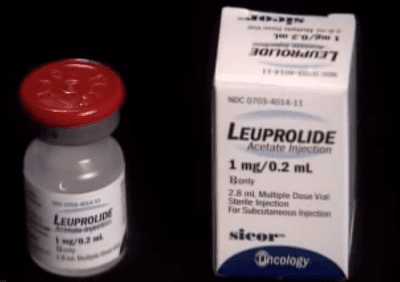Drugs that are being used to halt puberty in gender-confused youth have been linked to thousands of adult deaths, government data show.
The Food & Drug Administration has recorded thousands of deaths associated with Lupron, a puberty-blocking drug that is routinely used to treat prostate cancer in men and endometriosis in women. Adverse complications related to its use include breast disorders, malignant neoplasms, and psychiatric and nervous disorders.
Lupron — and other drugs in its class — significantly alters the hormone levels in the body and has been documented to contribute to blood clots and other cardiovascular complications, as well as brittle bones and faulty joints.
Between 2012 and June 30 of this year, the FDA documented 40,764 adverse reactions suffered by patients who took Leuprolide Acetate (Lupron), which is used as a hormone blocker. More than 25,500 reactions logged from 2014-2019 were considered “serious,” including 6,370 deaths.
Lupron is being prescribed off-label for use in children who have been diagnosed with gender dysphoria despite the lack of formal FDA approval for that purpose. The drug is clinically approved for treatment of precocious puberty, a condition where children start their pubertal processes at an abnormally early age and the blocker is administered for a short time until the proper age.
“The first well-documented case report of a puberty blocker like Lupron (a similar medication called Triptorelin which has an identical mechanism of action) being used in a young patient with gender confusion was published out of Holland in 1998 where a pediatric endocrinologist, working together with a psychiatrist, decided to use the medication on a 13-year-old girl suffering from gender dysphoria,” Michael Laidlaw, a Rocklin, California-based endocrinologist, told The Christian Post in a previous interview.
Reports have emerged in recent years showing that the pediatric version of the drug comes with few warnings about long-term side effects and leads to lasting and severe health problems.
When injected into a physically healthy body, the drug interrupts a normally-functioning endocrine system, yielding hypogonadotropic hypogonadism, according to Laidlaw.
“It’s a serious condition that endocrinologists would normally diagnose and treat because it interferes with development, but in [gender dysphoria] cases they’re inducing this disease state,” he said in an interview with the National Catholic Register.
In 2017, the FDA said it was “conducting a specific review of nervous system and psychiatric events in association with the use of GnRH agonists, [a class of drugs] including Lupron, in pediatric patients,” in response to questions from Kaiser Health News and Reveal from the Center for Investigative Reporting. The government agency was also reportedly reviewing seizures that stemmed from use of Lupron’s pediatric version and other drugs in its class.



